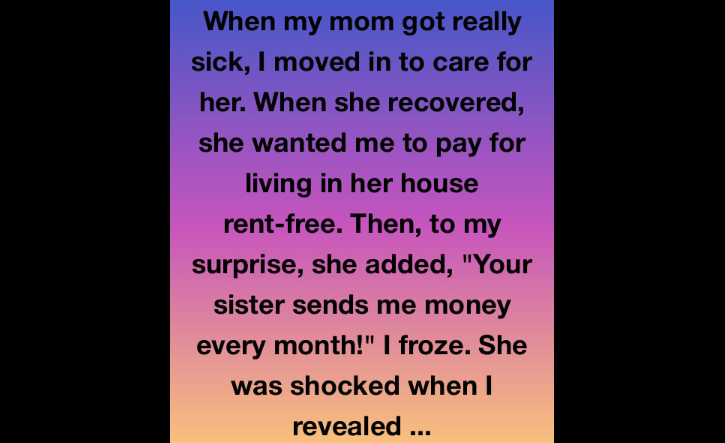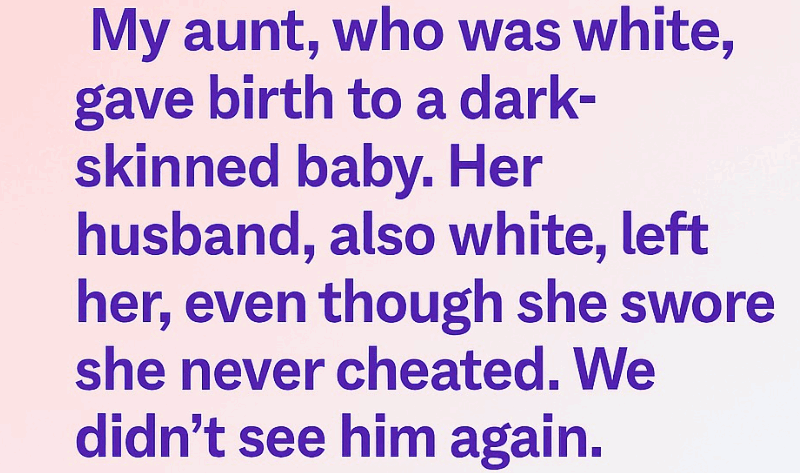I resided with my father and tended to his needs. After his passing, I received my inheritance. Everything belonged to me. Then, a peculiar call came from my father’s friend. He revealed that my father had left me another gift. It was a key to an old house on Alder Street.
Alder Street was unfamiliar to me. When I sought more details, the man on the phone, Mr. Herrick, explained that it was a place my father frequented in his youth. He described it as my father’s “quiet place.” I inquired why my father never mentioned it. Herrick hesitated and said, “He had his reasons.”
I didn’t press further. Truthfully, I was still grappling with my father’s death. Two weeks had passed, and I had scarcely left the house. Grief arrived in unpredictable waves—sometimes overwhelming, sometimes strangely calm.
The following morning, I set out to locate the house. Alder Street was on the town’s outskirts, tucked among ancient trees and a row of homes that appeared untouched by time. The mailbox bore the correct number. The house was pale yellow, modest, slightly tilted to the left, with ivy climbing one side. The lawn was wild and overgrown. No one had lived there for years.
I inserted the key into the lock. The door groaned as it opened.
Dust floated in the air like mist. I coughed. The house carried the scent of aged wood, mothballs, and a faint sweetness. It wasn’t eerie—it felt as if time had paused within. I moved cautiously, wiping dust from frames and shelves. There were photographs—black-and-white images—of my father in his twenties, posing with people I didn’t know.
In a back room, I discovered a wooden desk with a slightly ajar drawer. Inside was a letter addressed to me.
I sat, my pulse quickening, and opened it.
“My son,” it started. “If you’re reading this, I’m no longer here. First, know that I love you. You cared for me in ways I never earned. But I must be truthful. This house… it’s tied to a promise I made long ago. And now, it’s yours.”
He wrote about a woman named Anna. He said they were together before he met my mother. Anna became pregnant, but circumstances grew complex. Her family took her away, and he never saw her again. Later, he learned their child—a daughter—had been placed for adoption. He spent years searching for her.
I let the letter fall. My father had a daughter? My sister?
I steadied myself and continued reading. He explained that when I was in high school, he found her. Her name was Lacy. She had lived in foster homes until 17, then drifted between jobs. They met once—only once. She wanted no relationship. But he began sending her money. Silently. No contact, only support.
He wrote that this house was purchased in her name, in case she ever chose to claim it. But she never did.
My mind reeled.
I lingered in that house for hours, poring over everything. There were receipts for money orders, unsent letters he wrote to her, even a photograph. She looked my age. Same eyes.
That night, sleep eluded me. I kept thinking about her. Wondering where she was, what she was like. I felt torn. Part of me was upset my father hid this from me. Part of me was simply sorrowful. And part of me felt… accountable.
The next week, I contacted Mr. Herrick for any information he had. He provided the name of a diner where she once worked, three hours away. It was a slim chance, but I resolved to go.
The diner was quaint, with worn booths and ever-hot coffee. I asked if Lacy still worked there. The waitress, a weary woman in her fifties, sized me up and said, “She left about a year ago. No warning. Just vanished. Sweet girl, though. Kind.”
I left my number with her. In case.
Weeks went by. Then one night, my phone rang.
“Is this… the guy asking about Lacy?”
My heart leaped. “Yes.”
“I’m her roommate. Or was. She stayed with me for a while. Got your number from a friend at the diner. She’s… dealing with things. But I can pass on your message.”
I paused, then said, “Tell her… her dad passed. And I’m her brother. I’d like to meet. No expectations.”
There was a pause. Then the woman said, “I’ll tell her.”
Another week passed. Then a text arrived.
“I don’t know what you’re after. But I’ll meet you. Once. Somewhere public.”
We met at a park near downtown. She wore a gray hoodie and jeans, hair pulled back. She resembled the photo. A bit older, more worn.
She stood, hands in pockets. “So. Brother?”
“Yeah,” I said. “Half-brother, I suppose.”
We sat on a bench. It was uneasy. I shared what Dad wrote. That he had searched for her. That he bought her a house.
She laughed, a sharp edge to it. “Now he decides to care.”
“He tried,” I said. “He didn’t always get it right. But he tried.”
She looked at me, eyes red. “Why are you doing this?”
I shrugged. “Because I think he wanted us to know each other. And because… you’re family.”
She was quiet for a long time. Then she said, “I’m not great with people. Never have been.”
“Same,” I said. “But I make decent coffee.”
That drew a small smile.
We didn’t talk long. But we agreed to meet again.
Over the next few months, we met weekly. Sometimes at a park, sometimes a coffee shop. She began to share. Her life had been tough—unwelcoming homes, people who took advantage. But she was sharp. Loved books. Wrote poetry on her phone.
I offered her the house.
She refused at first.
“I don’t want handouts,” she said.
“It’s not a handout. It’s yours. He bought it for you.”
She shook her head. “He didn’t know me.”
“He tried to.”
She eventually agreed to visit it.
When we arrived, she stood on the porch for a long time. Then she said, “It’s quiet.”
“Yeah,” I said. “He called it his quiet place.”
She moved in a month later. I helped her fix it up. We cleaned the gutters, painted the walls, planted flowers. She got a job at a nearby bookstore. Started writing again. One day, she handed me a notebook with her poems. Said, “For the first person who didn’t leave.”
The surprise came six months later.
A lawyer called. My father had another account. A savings account with over thirty thousand dollars. Left for “his children.”
I told Lacy. She wanted no part of it.
“I’ve lived without him my whole life,” she said. “I don’t need his money.”
“But you deserve it.”
She paused. Then said, “Let’s use it for something meaningful.”
We created a small scholarship in his name—for kids aging out of foster care. We named it The Quiet Start Fund. The first year, it supported two girls through their first semester of college. The second year, four.
Lacy began speaking at some of the events. Hesitantly at first. But she grew confident. People paid attention.
The final surprise?
One of the girls we helped—Maritza—approached Lacy after an event and hugged her. She said, “You gave me hope.”
Lacy cried in the car that night. She looked at me and said, “I spent so long feeling worthless. But maybe… maybe something good came from all this.”
She was right.
Sometimes life doesn’t deliver what we expect. But it brings us people. And people can be the true legacy.
We don’t always have ideal parents or perfect histories. But we can shape what comes next in the story.
Lacy and I aren’t the closest siblings. We bicker. We go weeks without speaking. But I know she’s out there, living her life, making a difference. And she knows I’m here.
We found each other. And that’s enough.
Here’s the takeaway: Family isn’t always straightforward. Endings aren’t always neat. But if you approach it with sincerity and a touch of kindness, you might discover something worth keeping.
If this story resonated with you, share it with someone who might appreciate it. Like it if you believe in new beginnings.



